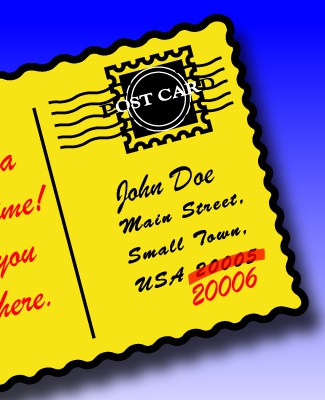How does ZIP code change home insurance rates?
Before you decide to buy your dream home in another ZIP code, you may want to check with your home insurance agent. Moving from one ZIP code to another can raise your insurance rates, even if the new home sits only a few blocks away from your current one.
One reason: The way insurance companies calculate homeowners premiums has changed in recent years, says Rick Mikolasek, an independent insurance agent in Dallas.
In the past, premiums were calculated based on all perils — such as a fire or hailstorm — in a particular ZIP code. “You would simply pay more if there were more claims in your ZIP code — or your state, for that matter — no matter the cause of the claim,” he says.
 Now, insurers employ more precise methods for figuring how much you should pay for home insurance, Mikolasek says. “This has led to the trend of rating by ZIP code for each particular type of loss, the same way auto insurance premiums have been calculated for years,” he says.
Now, insurers employ more precise methods for figuring how much you should pay for home insurance, Mikolasek says. “This has led to the trend of rating by ZIP code for each particular type of loss, the same way auto insurance premiums have been calculated for years,” he says.
For instance, in a ZIP code with a high number of theft claims, your home insurance premium easily could creep up by 3 percent to 5 percent compared with a lower-crime-rate ZIP code nearby, according to Mikolasek.
Zipping up hikes in your premium
In some cases, you can offset higher rates triggered by relocation to another ZIP code by making small changes to your coverage, says Ryan Hardgrave, an agent with Insurance One Agency LLC in San Antonio.
Let’s say you’re moving to a ZIP code with a history of hailstorms and windstorms — a move that could cost you an extra $500 to $600 a year. If you raise your hail and wind deductible to at least 1 percent of your annual premium, Hardgrave says, you can slice $250 to $500 from your annual premium. Most homeowners carry hail and wind deductibles of $500 to $1,000 — amounts that typically are less than 1 percent of your annual premium, he says.
If you don’t want to adjust your deductible, be sure to ask your insurance agent whether you’re qualifying for every discount that you can get, Hardgrave says. The most overlooked discounts include credits for living in a gated community (5 percent to 20 percent), installing a monitored burglar or fire alarm system (5 percent to 15 percent) and being a “mature” (over 55) homeowner (about 10 percent), he says.
Loretta Worters, a spokeswoman for the Insurance Information Institute, recommends asking these questions to see whether a ZIP code change could affect your home insurance rate:
• How far is the home from a fire station? A house within about five miles of a fire station that’s staffed by professional firefighters can cost 35 percent to 50 percent less to insure than a home that’s not near that kind of fire station, Mikolasek says.
• Is the home in a flood-prone area? Flooding is not covered by standard home insurance policies. Flood insurance is available from the National Flood Insurance Program and a few specialty insurers. The average cost of flood insurance: $400 to $500 a year.
• What is the earthquake risk? Coverage for earthquakes requires an endorsement (an addition to your basic policy) or a separate policy. The cost of earthquake insurance varies widely, depending in part on how likely it is that a quake will rattle your area, according to Worters.
Mikolasek suggests researching insurance costs for a new home just as you would investigate the schools and property tax rates in a new locale. “The best way to ensure you are not surprised when purchasing your policy is to obtain premium quotes from multiple insurance companies for each property in each ZIP code you are considering,” he says.
When looking for a new home insurance policy, you will want to compare multiple insurance rates and companies.